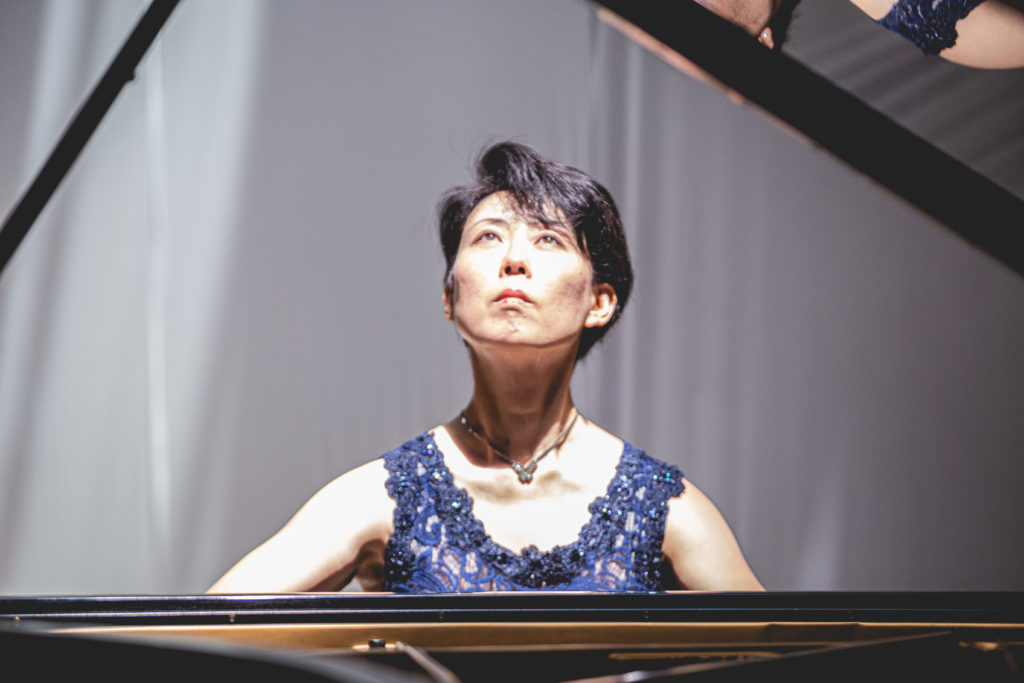I attended the New Year screening of the Cinema Kabuki “Yugen (幽玄)” presented by the Japan Foundation, Los Angeles. Produced, directed and performed by the legendary Kabuki actor Bandō Tamasaburō V, “Yugen” fuses the traditions of the Noh and Kabuki theater and sets it to the music of Kodo, world-renowned Japanese taiko drumming group.
The word “Yugen (幽玄)” depicts a concept that goes back to Taoism, that is at the core of Japanese culture and aesthetics related to everything from traditional architecture to Zen Buddhism, tea ceremony to theaters and literature. It means “deep and subtle mysteries of life and universe,” “fleeting yet significant meaning of everything,” and “thoughts/feelings/sentiments beyond words.” It makes me think of the Western aesthetic concept of the “sublime,” although the concept of yugen is much older, with deeper roots.
I felt that Cinema Kabuki “Yugen” was trying to capture the fleeting meaning of everything through striving for the balance between the opposites: the new and the old; ritual and performance; sensory perception and active expression; silence and action; light and shadow… And I felt my own sense of yugen through sharing the depiction of the depth of Japanese history and aesthetic tradition with audience members with such diverse nationalities and ethnic backgrounds in the Little Tokyo’s Aratani Theater in Downtown Los Angeles. The theater was full, and the applause after the showing was long and heartfelt.
“Yugen” inspired me to make my own discovery during my morning practice the next day. All the sudden, I felt that categorizing music into song or dance, as is typically done, is limiting.
Depressing the piano key, lifts the hammer inside the piano to strike the strings. As opposed to string or wind instruments where they can be expressive through held notes, pianists are dependent on the instrument’s decaying resonance once the initial sound is emitted. In short, it is a percussive instrument. Therefore, how to create the illusion of a song becomes the one of the ultimate challenges for a pianist. However, I realized that in my search for my cantabile, I’d neglected the joy of dancing. Song is the heart. Dance is the body. Just as thoughts without action, and actions without thoughts, are barren, a song without dance, or a dance without song are difficult to resonate with. So, how can I best merge these two things in my music?

My concerts start again this coming week. I will look for the ultimate resonance and empathy through the balance between the two opposites!
This blog entry is based on entry 121 of my bi-weekly column “the Way of the Pianist,” published in Nikkan San.
It is always good and enlightening to read of your latest activities and I still rememer what you taught me in a few minutes aboard the ship crossing the Atlantic … now so long ago.
The mood created and/or expressed by moving one half tone lower in compositions such as the beautiful but sad music by Chopin.
Good luck to you. I almost always mention your work when the subject of music’s effect on health comes up. I think it massaged MY health, for better or worse, depending on what mood I seek at the times.
Thank you for your thoughtful comment, Ione! I so appreciate knowing how much that memory of our short lesson resonates with you to this day.
Music is powerful – and it encourages me to know that what I have to share means something to you each time.
Makiko